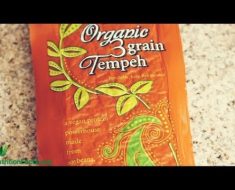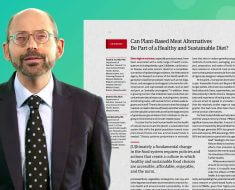Macrobiotic Diets
Macrobiotics emphasize locally-grown, organically-grown whole grain cereals, legumes, vegetables, fruit, seaweed, and fermented soy products, combined into meals according to the principle of balance between yin and yang properties, rather than scientific dietary guidelines. Macrobiotic diets follow the idea of Yin and Yang. Cereals, fruit, beans, nuts and vegetables, and rice make up the main part of the diet and are considered neutral and are naturally balanced in terms of Yin and Yang. Foods which are either extremely Yin in nature or extremely Yang in nature are eaten very rarely if at all. Very Yin products include coffee, tropical fruit, sugar, soft dairy products, vegetables, alcohol, and honey.
Very Yang products include poultry, meat, firm dairy products like hard cheeses, and eggs. All food is considered to have both properties with one dominating food with yang qualities are considered. Compact dense, heavy and hot, whereas those with young qualities are considered expansive, light, cold, and diffuse. However, these terms are relative. Yang, miss or illness is only discussed in relation to other foods, brown, rice, and other whole grains, such as barley, millet, oats, quinoa, spelled rye, and Thanks, considered by macrobiotics to be the foods in which yin and yang are closest to being.
In balance, therefore, lists of macrobiotic foods that determine a food as yin or yang generally compare them to whole grains nightshade vegetables, including tomatoes, peppers, potatoes, and eggplant. Also, spinach beets and avocados are not recommended or are used sparingly in macrobiotic cooking, as they are considered extremely in some macrobiotic. Practitioners also discourage the use of nightshade because of the alkaloid solanine thought to affect calcium balance.
Some proponents of a macrobiotic diet believed that nightshade vegetables can cause inflammation in the body and osteoporosis topic practices. You topic food, some general guidelines for the Japanese style, macrobiotic diet to the following. It is also said that a macrobiotic diet varies greatly depending on geographical and life circumstances. Well: chewed whole cereal grains, especially brown, rice, 40 to 60 %, vegetables, 25 to 30 % beans and legumes 5 to 10 %, miso soup, 5 % sea vegetables, 5 % traditionally or naturally processed foods.
The macrobiotic diet is high in natural, unprocessed foods, complex carbohydrates, and vegetables. It is low in saturated fats, whilst providing essential fats. Food should be organically grown and eaten fresh. The Macrobiotic lifestyle also governs how food should be prepared. No microwave should be used – rice must be cooked in a pressure cooker. Food should be eaten and chewed slowly, in a relaxed manner.
Low-fat high-fiber diets are also believed to play a role in preventing some types of cancer. And the macrobiotic emphasis on fresh, non-processed foods may be beneficial to those dealing with certain food allergies and chemical sensitivities. Followers assert that the balance and harmony of the macrobiotic diet and lifestyle create the best possible conditions for health. They claim that the diet yields many positive health effects, including a general sense of well-being, and some studies actually show that people on the diet have a decreased risk of heart disease and some forms of cancer.
There is no scientific evidence to prove that macrobiotic diets can treat or cure cancer or any other disease topic. Nutrition. Most macrobiotic diets are not nutritionally sound people following the macrobiotic diet are at increased risk of developing scurvy. The following nutrients should be monitored, especially in children because of their importance in facilitating growth and function. Calcium protein iron, zinc, vitamin d, vitamin b12 riboflavin vitamin omega-3 fatty acids. Fish provides vitamin b12 in a macrobiotic diet, as bioavailable b12 analogs have not been established in any natural plant food, including sea, vegetables, soya, fermented products, and algae.
Although plant-derived foods do not naturally contain b12, some are fortified during processing with added b12 and other nutrients. Vitamin a as its precursor beta-carotene is available from plants such as carrots and spinach. Adequate protein is available from grains nuts, seeds, beans, and bean products. Sources of omega-3 fatty acids are discussed in the relevant article and include soy products, walnuts, flax, seeds, pumpkin seeds, hemp seeds, and fatty fish riboflavin, along with most other b. Vitamins are abundant as a whole. Grains iron in the form of non-heme iron in beans, sea, vegetables and leafy greens, is sufficient for good health.
Detailed information is in the USDA database. You topic safety topic complications, one of the earlier versions of the macrobiotic diet that involved eating. Only brown, rice, and water has been linked to severe nutritional deficiencies and even death. Strict macrobiotic diets that include no animal products may result in nutritional deficiencies unless they are carefully planned.
The danger may be worse for people with cancer who may have to contend with unwanted weight loss and often have increased nutritional and caloric requirements. Relying on this type of treatment alone and avoiding or delaying conventional medical care for cancer may have serious health consequences topic. Children. Children may also be particularly prone to nutritional deficiencies resulting from a macrobiotic diet. Topic. Pregnancy, macrobiotic diets have not been tested in women who are pregnant or breastfeeding, and the most extreme versions may not include enough of certain nutrients for normal fetal growth. Equals, see. Also







